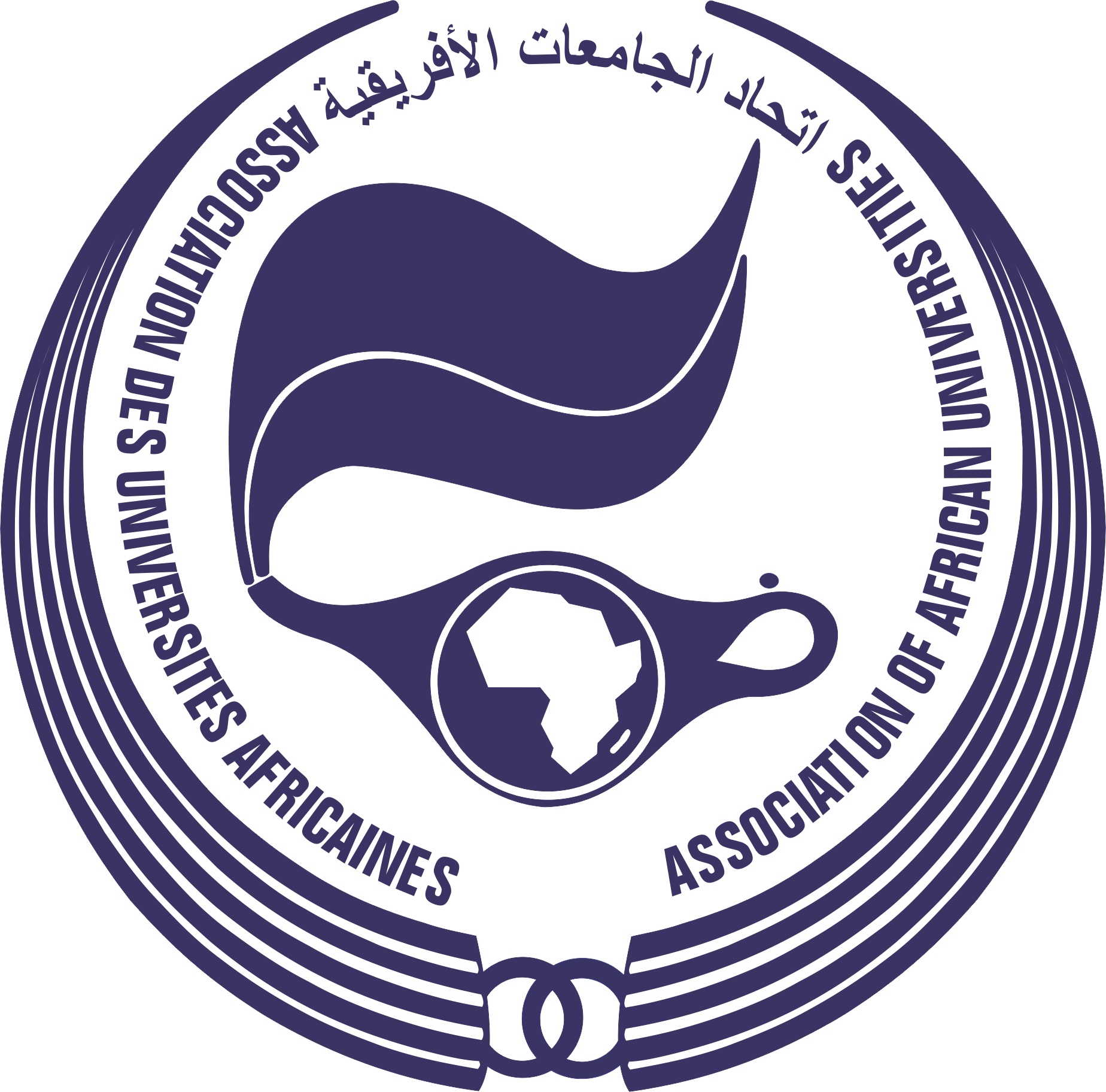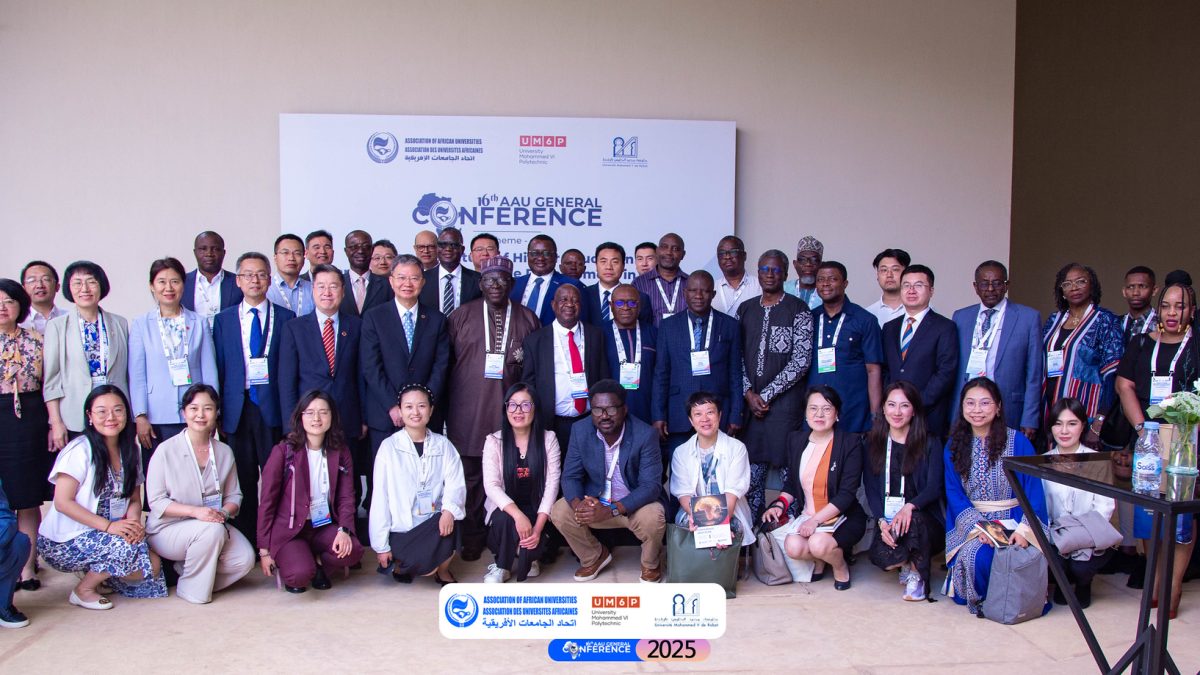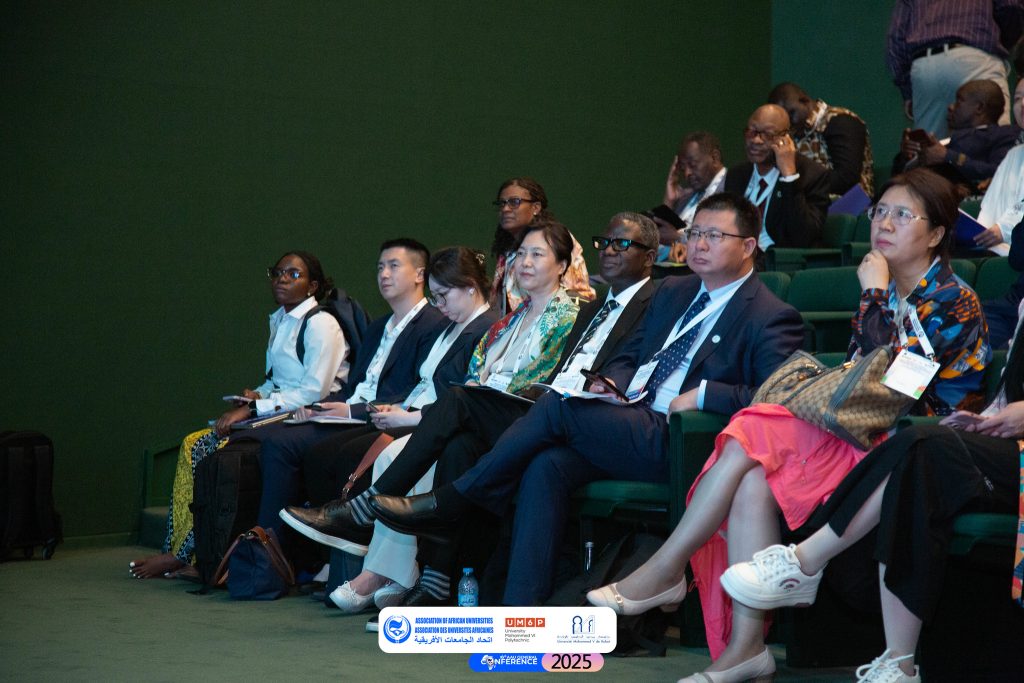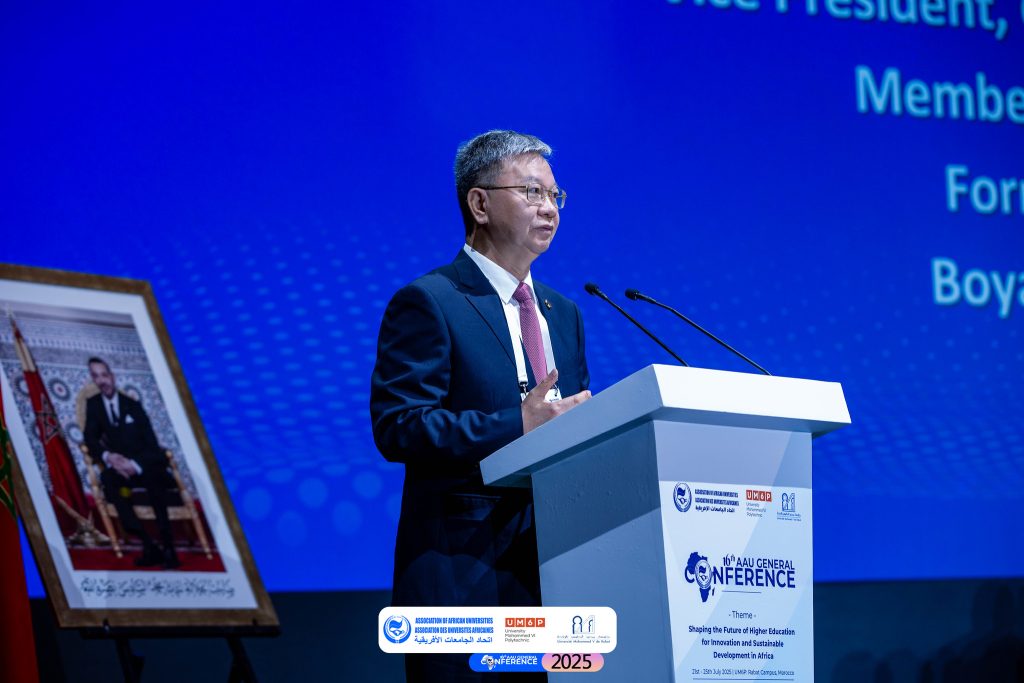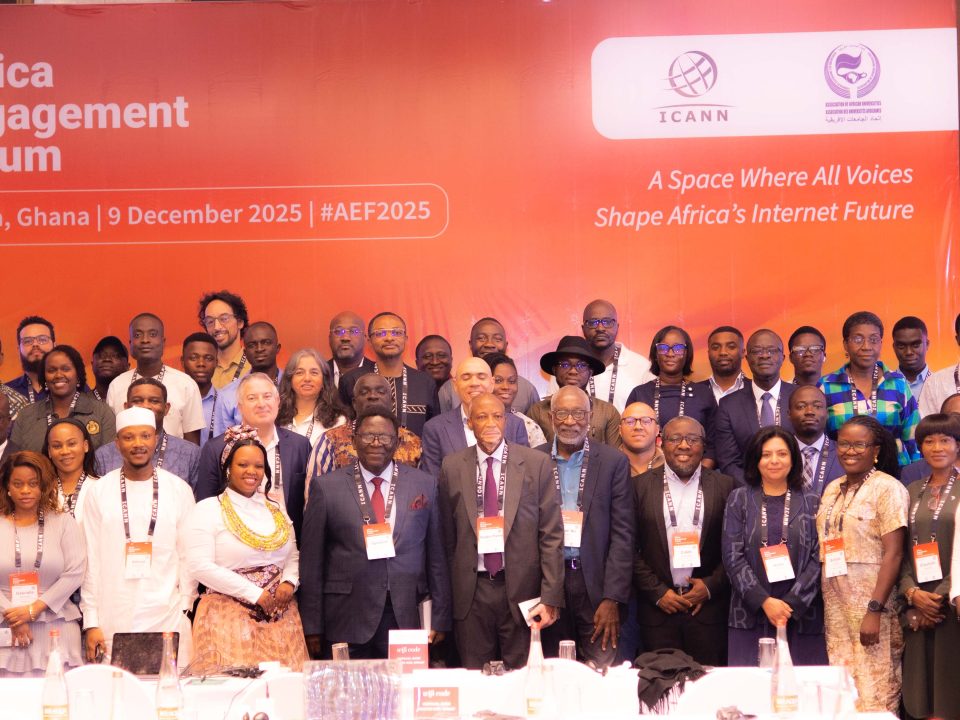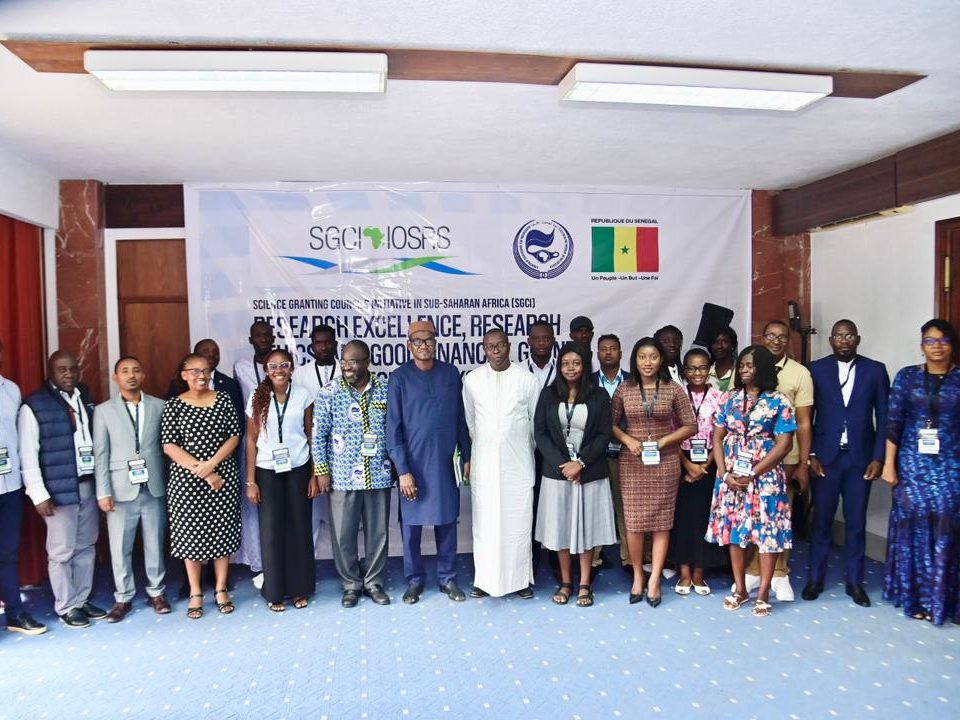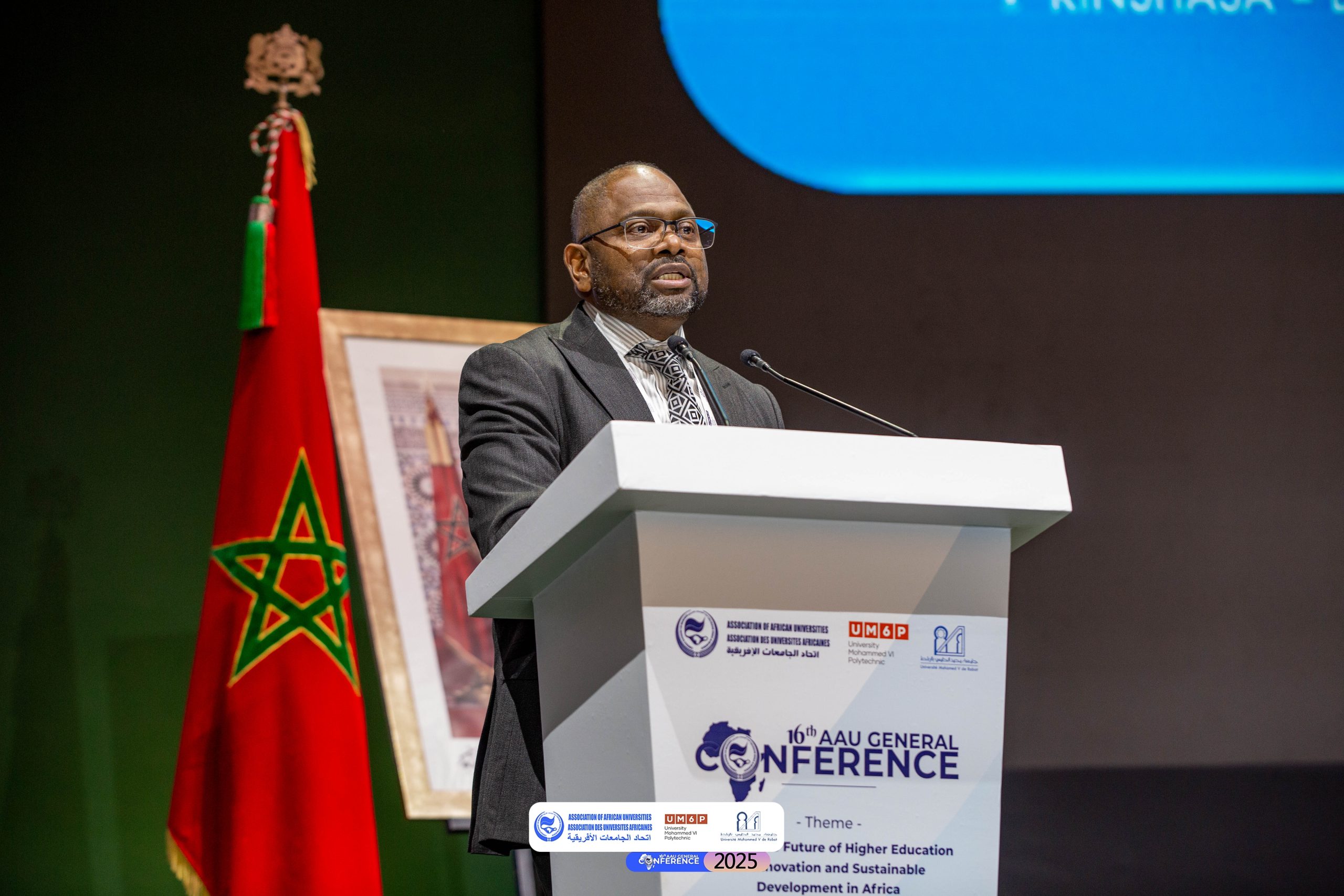
Exploiter les données pour transformer l’enseignement supérieur a travers le continent – Aperçus du projet sur la démographie des professeurs africains
July 24, 2025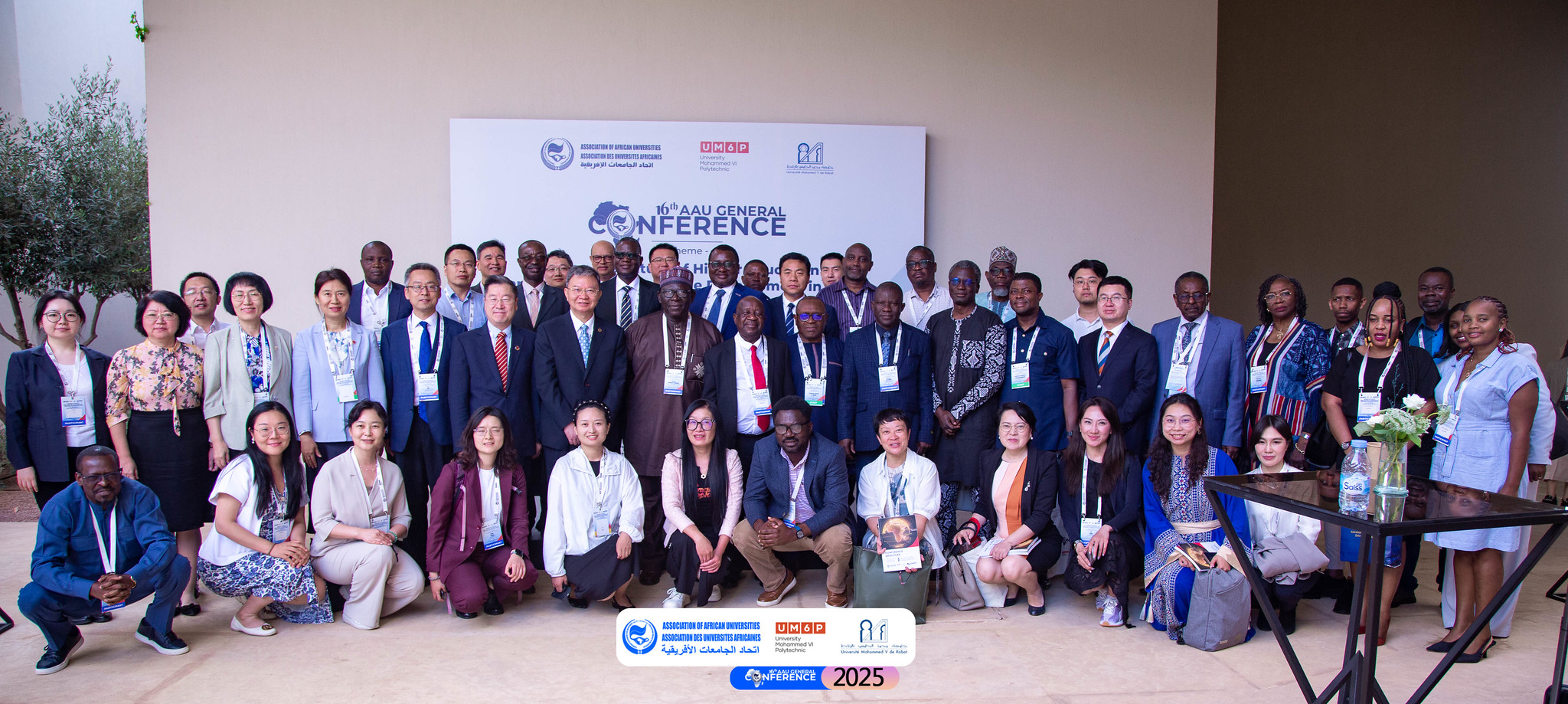
Redéfinir les Partenariats Universitaires Mondiaux : la Chine et l’Afrique Construisent un Avenir Commun dans l’Enseignement Supérieur
July 24, 2025The China-Africa higher education collaboration is entering a new era, one defined not by unilateral support or knowledge transfer, but by co-creation, mutual leadership, and strategic alignment. This was the clear message from the parallel session held during the Association of African Universities’ (AAU) 16th General Conference in Rabat, Morocco, titled Annual Meeting of the China-Africa Consortium of Universities Exchange Mechanism (2025) and China-Africa Higher Education Exchanges and Cooperation.
Overview and Opening Ceremony
Prof. Olusola Oyewole, Secretary-General of the Association of African Universities (AAU),Prof. Yan Chunhua, Vice President of the Chinese Society of Higher Education (CAHE), and an academician of the Chinese Academy of Sciences, and Mr. Li Changlin, Chinese Ambassador to Morocco, attended the conference and delivered high level addresses. More broadly, the session convened a diverse group of stakeholders, including World Bank officials, African and Chinese university leaders, government officials, scholars, industry and development partners. It provided a platform to reflect on the progress made through the Exchange Mechanism, discuss existing challenges, and envision a collaborative future rooted in equity, innovation, and sustainability.
Mr. Li Nan, Vice President and Secretary-General of CAHE; Prof. Frederick Ato Armah, Director of Research and Programs of AAU, Prof Zhou Zuoyu, Vice Chairman of the University Council of Beijing Normal University and Director of the UNESCO International Research and Training Centre for Rural Education chaired sessions and or delivered addresses during the conference. Furthermore, Ndanduleni Bernard Nthambeleni, Vice Chancellor of University of Venda; Mrs. Gao Xiaojie, Deputy Secretary-General of CAHE, Mr. Ransford Bekoe, Director of the Partnerships at AAU, and Prof Peng Yi, higher education expert appointed by AAU and CAHE, presided over the conference respectively.
At the opening ceremony, Prof. Olusola Oyewole said that the China-Africa university cooperation has achieved positive results from the initial idea to the present. The Exchange Mechanism has provided an important platform for African universities to expand international cooperation with remarkable cooperation results in academic exchanges, capacity building, digital education and other fields. Both sides committed to adhering to the principles of two-way interaction and mutual learning. Prof. Oyewole called on participants to explore and learn from the experience of the World Bank’s Africa Higher Education Centers of Excellence Project, increase investment in Africa’s scientific research fields, improve the scientific research conditions of universities, and empower the development of African youth. Vice President of CAHE, Prof. Yan Chunhua stated that educational cooperation is an important part of China- Africa friendly relations, and the Exchange Mechanism has become an important engine for China-Africa higher education.
The Evolution of the Exchange Mechanism
Launched through a Memorandum of Understanding (MoU) in 2022, the China-Africa Universities Exchange Mechanism has steadily expanded its reach. In presenting a work report, Prof. Yuan Dayong, Secretary-General of the Chinese Secretariat of the Consortium and Executive Dean at Beijing Foreign Studies University, shared the journey of the mechanism over the past two years. From initial visits and digital dialogues into joint research projects, academic forums, executive training, and multilingual knowledge exchange platforms. Notable achievements included the training of African talents in diverse sectors such as agriculture and education, the establishment of digital learning tools, and the organization of the China-Africa 100 University Operation Plan under the auspices of UNESCO Campus Africa. Despite these milestones, some gaps remain. He stressed the need for improved governance structures, clearly defined institutional roles, and more consistent engagement across African and Chinese universities. He also called for flexible communication models, such as hybrid meetings and micro-consortia, to overcome the logistical constraints posed by geography and resources. “We must move from sporadic collaboration to sustained partnerships built on mutual understanding and shared responsibility,” he remarked.
The African perspective was presented by Ms. Comfort Yeboah, Partnership Officer at the AAU, who offered a statistical report of current progress. As of mid-2025, 63 African universities across 23 countries had been matched with Chinese counterparts through a competitive process, and 13 African institutions had signed an MoU with 12 Chinese universities. These numbers reflect the growing momentum behind the mechanism, yet Ms. Yeboah acknowledged a series of operational challenges, including language barriers, limited administrative support, cultural differences, and financial constraints. She emphasized the AAU’s commitment to supporting universities through the next round of enrolment, streamlining MoU processes, and facilitating institutional training tailored to the unique needs of partner institutions. “By championing this collaboration, we open doors to transformative opportunities for our students, faculty, and institutions,” she stated. Her appeal to African universities was clear: to take active ownership of the collaboration and become co-architects of its design and delivery.
Several presentations during the session offered concrete examples of this vision in action. The University of International Business and Economics (UIBE) in Beijing detailed its leadership in the China–Africa 20+20 Cooperation Plan, showcasing collaborations with 18 African institutions, executive training for over 600 African government officials, and the development of academic programs focused on trade, digital transformation, and entrepreneurship. UIBE’s plans for the future include the creation of a digital economy talent development program, a China–Africa digital trade research center, and a digital entrepreneurship competition aimed at bridging academic theory with industrial practice.
From the African side, Mulungushi University in Zambia stood out as a compelling case study of an institution strategically positioned to connect China, Zambia, and the broader African continent. The Vice Chancellor, Prof. Royson Mukwena, described the university’s role as a catalyst for triangular partnerships. He highlighted existing joint research clusters in areas such as health, agriculture, and climate change, and underscored the university’s alignment with the African Union’s Agenda 2063 and the Sustainable Development Goals. Prof. Mukwena emphasized the importance of creating innovation labs, investing in AI, expanding staff exchange programs, and adopting dual-language digital platforms to enhance inclusivity and access.
A Call for Balanced and Reciprocal Partnerships
Prof. Folasade Ogunsola, Vice-Chancellor of the University of Lagos made a strong call to Africa’s higher education sector. Drawing from nearly two decades of engagement with Chinese institutions, including the establishment of the Confucius Institute at her university, from a community engagement initiative to a full-fledged academic program offering degrees in Chinese language, Prof. Ogunsola called for a fundamental rethinking of the partnership model. “We must move beyond the one-sided model. Africa is not just a recipient. We are 54 countries, with the world’s youngest population and untapped potential. This must be a two-way street,” she emphasized. Her remarks called for deeper engagement from Chinese institutions, including the promotion of African languages in Chinese universities, the mutual exchange of faculty and students, and the establishment of co-managed innovation hubs. She further advocated for the creation of virtual universities and digital knowledge platforms that would serve underserved communities, drive inclusive learning, and facilitate real-time collaboration across continents.
The session’s second plenary focused on digital transformation as a cornerstone of the China–Africa education partnership. Presenters emphasized that the integration of AI, online learning systems, and virtual academic networks is a strategic imperative for creating sustainable and inclusive education systems. Institutions such as KCA University in Kenya and Xiamen University in China proposed a bilateral quality assurance framework, a credit transfer system, and the development of a continental China–Africa academic cooperation charter. These instruments aim to harmonize standards, improve mobility, and enable cross-border collaboration in research, entrepreneurship, and policy development. While the session celebrated progress, the call to action was unambiguous. Stakeholders agreed that the time has come to move beyond ceremonial agreements and instead institutionalize these collaborations through co-developed curricula, coordinated funding mechanisms, joint degrees, and shared governance models. As Prof. Peng Yi, Higher Education Expert appointed by CAHE and AAU, who is also a Professor from Nanjing Tech University noted, the success of the exchange mechanism will depend on its ability to deliver practical outcomes, not just in policy documents, but in classrooms, laboratories, and communities. She stated, “Our mechanism is only as strong as its implementation. We must leverage the financial readiness of Chinese universities and the growing appetite for innovation in African institutions”. She also introduced the development of the exchange mechanism which aims to implement the major initiative of the “China-Africa Talent Development Cooperation Plan” proposed by President Xi Jinping at the 2023 China-Africa Leaders’ Dialogue in Johannesburg. The exchange mechanism has been included in the Forum on China-Africa Cooperation Beijing Action Plan (2025-2027). The first Annual Meeting of the China-Africa Consortium of Universities Exchange Mechanism (2024) has been included on the list of the outcomes of the implementation of the follow-up actions of the Beijing Summit of the Forum on China-Africa Cooperation. Dr. Xiaonan Cao from the World Bank presented on “Strengthening and Expanding Collaborative Networks for Greater Impact.”
Prof.Wahab Olasupo Egbewole, SAN, Vice Chancellor of University of Ilorin,, Dr. Samuel Donkor, President & Founder of All Nations University, Vice President, Prof Ding Xia from Beijing University of Chinese Medicine, Mr. Abduraghman (Manie) Regal, Executive Director of Finance and Services, the University of the Western Cape, Prof. Zhao Tingting from Xiamen University, Prof Huang Xiao from Zhejiang Normal University, Ms. Wang Siyao from Beijing Normal University also delivered insightful speeches.
The China–Africa Universities Exchange Mechanism is more than a symbolic partnership. It is an ambitious framework for reimagining how global higher education can be governed, delivered, and transformed not from the Global North, but through South–South cooperation. This plenary session revealed that African and Chinese universities are no longer content with outdated paradigms. They are forging a new one, one that prizes equity over hierarchy, co-creation over prescription, and shared futures over transactional engagements. At the heart of this transformation are the students, researchers, and communities whose lives will be reshaped by dignity, knowledge, and the promise of a partnership that is truly global in ambition and deeply local in impact.
